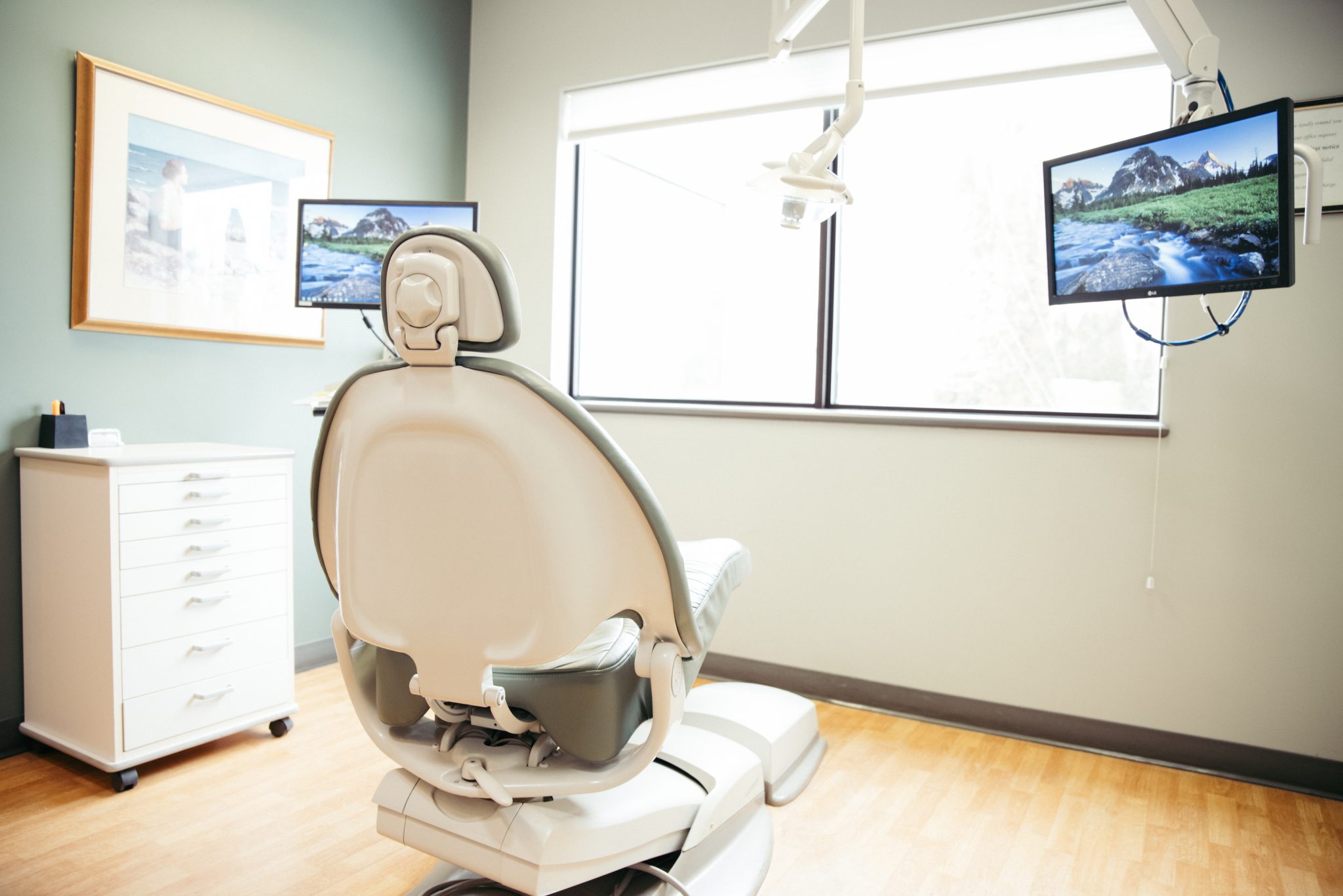April is National Oral Health Month and Oral Cancer Awareness Month. The Canadian Cancer Society estimates about 3,200 Canadians will be diagnosed with oral cancer, and over 1,000 deaths from oral cancer will occur annually. This often fatal condition has a higher mortality rate than a number of other cancers, including breast cancer and prostate cancer. However, oral cancer can be successfully treated if caught at an early stage — that’s one of the top reasons why Oral Cancer Awareness Month is so important.
At Enamel Dental in Penticton, screening for precancerous and cancerous growths is a standard part of our routine dental check-up procedure. The oral cancer examination performed by Dr. Jung & Dr. Marino during a routine dental exam is fast, easy and painless – and it could save your life.
We believe Oral Cancer Awareness Month is the perfect time to raise awareness and educate Canadians about prevention. With this in mind, our team at Enamel Dental has compiled the best resources in an effort to promote Oral Cancer Awareness Month.
Oral Cancer Symptoms
The Canadian Cancer Society defines oral cancer as a mouth cancer that begins in the cells of the mouth. “It can also spread (metastasize) to other parts of the body. The most common place oral cancer spreads to is the lymph nodes in the neck. Oral cancer may also be called oral cavity cancer or mouth cancer.”
Oral cancer symptoms, including bleeding and tender gums, oral pain, and mouth infections, are often overlooked or go unnoticed. The most common symptom of oral cancer is an ulcer or sore in the mouth or on the lip that won’t heal. There are a number of symptoms and signs to be aware of that include, but are not limited to, persistent pain in the mouth, a lump on your lips, mouth or tongue, thick inner-cheek lining, bleeding, loose teeth, swollen salivary glands or lymph nodes and even weight loss.
Precancerous conditions, such as leukoplakia, erythroplakia and erythroleukoplakia, form when the cells in the mouth don’t grow or behave normally. These abnormal cells are not cancerous, but can become cancer if they’re not properly treated. If you notice white, red, or a mix of red and white patches on the lips or in the mouth, these are often signs of leukoplakia, erythroplakia and erythroleukoplakia.
Oral Cancer Awareness at Enamel Dental
Dr. Jung & Dr. Marino play a crucial role in the early detection of oral cancer as dentistry is about prevention. Your routine dental exam is the foundation of good oral health and a key factor in a variety of common oral health, ranging from tooth decay and gum disease to oral cancer and oral diseases. A dentist may notice subtle changes in the mouth that a patient won’t.
Since several of the symptoms are similar to other health conditions, it’s important to run a few tests to either diagnose or rule out oral cancer. If oral cancer is diagnosed, Dr. Jung or Dr. Marino, along with your doctor will create an individualized mouth cancer treatment plan based on number of factors, including which stage of oral cancer you are diagnosed with.

Oral Cancer Awareness: Risk & Prevention
Anyone can have oral cancer, which is exactly why prevention and oral cancer awareness are so important. However, there are a few factors that may increase the likelihood of developing oral cancer.
The risk of developing oral cancer increases with age, particularly after the age of 45. Tobacco use, presently or in the past, as well as alcohol consumption, can increase your risk of developing oral cancer. If you have a history of using either, you may want to book an oral cancer screening. It should be noted that even individuals who don’t have a history of smoking or alcohol consumption can still develop oral cancer.
Additionally, men are twice as likely to develop oral cancer than women, with most being over the age of 55. Also, an unhealthy diet and prolonged sun exposure can increase your risk.
Being proactive and ensuring you are screened regularly, maintain healthy oral habits and visit Dr. Jung or Dr. Marino for regular checkups are all important factors in fighting this life-threatening condition.
At home, be sure to check your oral tissues regularly, schedule a dental appointment if you notice anything unusual and book routine check-ups with Dr. Jung or Dr. Marino. Being proactive and taking the measures to ensure you maintain good oral health and educating yourself about oral cancer awareness are excellent first lines of defense.

